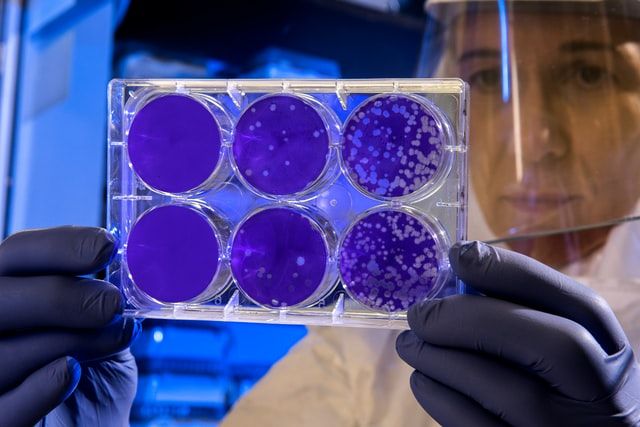
COVID-19 Public Health Emergency Updates
As of May 11, 2023, healthcare in the U.S. might feel different for many people. In the continuing battle against COVID-19, May 11 signals the end of the declaration of COVID as a national public health emergency (PHE).
The public health response to the pandemic gave many people in the U.S. a small taste of universal healthcare. Moving forward, Medicaid and Medicare recipients, people with insurance, and others who have relied on COVID vaccinations and boosters may wonder what the end of the PHE will mean.
Ending the PHE Declaration
Throughout most of the pandemic, Americans were able to get vaccinated and tested for COVID for free. Individuals who got infected could also get treatment, even if they did not have health insurance. Hospitals bore a heavy burden caring for patients with COVID. However, they received government funding to help them provide essential services and continue their operations through several coronavirus surges.
On January 23, President Biden announced that the COVID federal (PHE) declaration will end on May 11. This change will halt the COVID-related relief that legislation allowed during the pandemic. Given the long-term health and economic effects of COVID, Congress has extended some of the pandemic-related provisions, which will still run out unless Congress responds promptly. Overall, the ending of the PHE declaration means changes for many Americans.
Availability of Vaccine and Antiviral Medications
Anyone needing current doses of vaccines, boosters, or antiviral drugs can still get them at no cost because the U.S. government has already paid for them. Also, the White House has provided extra funding for the updated “bivalent” booster vaccines. However, medications in circulation will likely run out this year, and Congress has not successfully passed legislation that would restock the supply.
New medications not yet in circulation will reach the commercial market this summer or fall. The White House asserts that people covered by the Affordable Care Act should still be able to get free COVID vaccines. The White House also pledges they will continue to work with insurers and payers in making these life-saving drugs continually accessible. However, even with cost-sharing and other measures in place, it could be more difficult for some Americans to access the care they require as the coronavirus threat lingers.
Access to COVID Testing, Vaccination, and Treatment
During much of the pandemic, COVID tests, vaccines, and treatments have been free for everyone in the U.S. Individuals can still order a limited number of tests and get vaccines and booster shots at no cost, with or without private insurance.
After May 11, insurance companies will be able to determine out-of-pocket costs for these drugs. For the 8% of Americans without health insurance, getting tested, vaccinated, or treated for the latest COVID variants may be cost-prohibitive. Even for people with private insurance, which includes half the U.S. population, it may be challenging to stay up-to-date on vaccinations or seek treatment if they get sick, depending on coverage.
Changes for Medicare Beneficiaries
After May 11, Medicare recipients will be able to obtain physician-ordered vaccines and antigen tests. However, people with Medicare should expect to pay more for some antiviral treatments like Pfizer’s Paxlovid. Also, recipients will no longer have access to free over-the-counter COVID tests.
Due to Congressional intervention, Medicare will still cover emergency medicines approved by the U.S. Food and Drug Administration (FDA) until the end of 2024. This extended coverage applies to some COVID antivirals.
Impacts on Medicaid Recipients
The PHE declaration justified the extension of Medicaid coverage to more people financially and medically affected by the pandemic. Some of these allowances empowered some states to implement programs to address mental health issues and substance use disorders (SUDs).
Once the PHE ends, Medicaid will still enable recipients to get free COVID vaccines, but coverage for testing and treatment will end in 2024. A Medicaid provision that allowed states to cover costs for uninsured people through the pandemic will expire in May. Experts predict that these changes will cause millions of individuals to lose their health coverage.
Telehealth Access
The explosion of telehealth services during the pandemic allowed many individuals to receive treatment while following social distancing mandates. Thanks to government funding and insurer cooperation, about 40% of patients seeking SUD and mental health treatment did so virtually. The PHE telehealth provisions also added flexibility to medicine-assisted treatment (MAT), allowing people struggling with opioid addiction to get their medications.
Congress acted to extend telehealth access through 2024. The extent to which Medicaid beneficiaries will continue to benefit will depend on their states. Some recipients may lose access to current services, while residents of other states could see the relaxation of geographic restrictions become permanent.
Emergency Funding for Hospitals
While most hospitals experienced tremendous strain during the pandemic’s case surges, they could serve those in most need due to federal funding and the postponement of elective procedures. Larger healthcare systems fared better than smaller hospitals, even going after some funds they did not need. Small hospitals remain financially strained and will struggle to survive without support from the federal government.
Research and materials for this article were compiled, written, and distributed on behalf of the National Public Health Information Coalition. The views and opinions expressed in this blog are those of the various authors and do not necessarily reflect the official policy or position of the National Public Health Information Coalition or its members.
References
https://www.cbsnews.com/news/covid-vaccine-treatment-private-market-white-house-official-says/
https://www.cbsnews.com/news/paxlovid-covid-19-drug-free-next-year-cost/
https://www.statnews.com/2023/02/09/medicare-covid-tests-emergency-ends/
https://www.wsj.com/articles/billions-in-covid-aid-went-to-hospitals-that-didnt-need-it-11670164570

